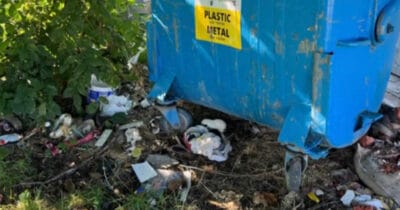
We often hear the phrase “adopt, don’t shop,” encouraging us to seek our pets from animal shelters rather than pet stores or breeders.
It’s good advice, and not just because it’s important to clear the shelters. It’s also because animals found in stores often come from “puppy mills.”
These are breeding facilities that produce puppies and kittens at a high volume for maximum profit, often at the expense of the animals’ wellbeing. Many have been found to be in shockingly poor condition.
And according to the Humane Society, most puppies bought in stores or online come from these breeders.

It’s important to not support these breeders or the shops they work with. Now, a Maryland law has gone into effect to help cut off the state’s puppy mill operations.
The state law known as the “No More Puppy- and Kitten-Mills Act” was signed in 2018 by Governor Larry Hogan. It bans retail stores from selling commercially-bred animals that often come from “puppy mills.”
The law finally went into effect this month. Gov. Hogan celebrated the ban.
“I was proud to push for and enact the No More Puppy- and Kitten-Mills Act,” he wrote on Twitter. “We will continue to advocate for animal welfare & encourage safe, humane pet adoption here in Maryland.”
According to the Washington Post, one of the witnesses who advocated for the bill’s passage was a former pet store employee who said their puppies arrived from breeders “undernourished and infested with fleas and parasites.”
She also said that a puppy died in the store “at least once a month.”
But the bill hasn’t been without its challenges. Three Maryland pet stores filed a lawsuit in October to stop the bill, claiming it was unconstitutional.
The stores have defended themselves by saying they only get their dogs from reputable breeders, not puppy mills, and that the law will do nothing but put them out of business while puppy mills will continue to operate through online sales.
According to WUSA9, their suit was dismissed, as were seven earlier lawsuits. Hogan said it was more important to look after the animals than the handful of businesses.
“There are about seven pet stores in Maryland that might be affected, but there are thousands of puppies,” he said, according to the Post.

Pet stores can still sell animals from animal control, animal welfare organizations or local breeders who meet a certain criteria.
The hope is that they’ll be able to help these animals in need of homes without financially supporting cruel breeding facilities.
What great news! We hope to see more people take action against puppy mills to make sure no dog has to suffer from poor treatment.
Share this good news and spread awareness!






